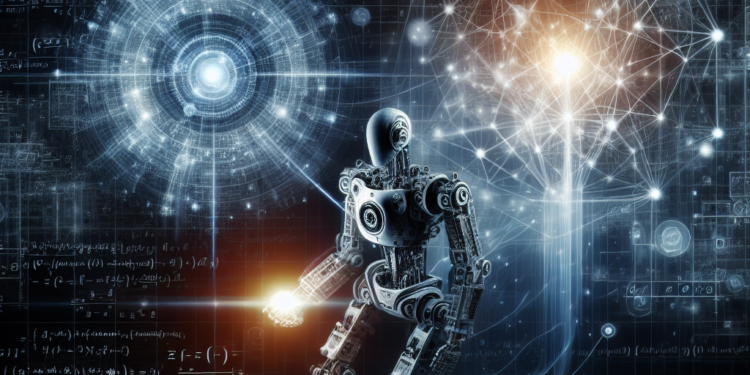AI in Robotics: Advanced Concepts
Artificial Intelligence (AI) has made significant strides in recent years, particularly in the field of robotics. As machines become more integrated into various aspects of life, the need for advanced AI capabilities in robotics has become increasingly apparent. In this article, we will explore some of the advanced concepts in AI that are being utilized in robotics today.
One of the most important advancements in AI and robotics is the development of machine learning algorithms. Machine learning is a subset of AI that focuses on creating algorithms that can learn and improve on their own without being explicitly programmed. This allows robots to adapt to new situations and environments, making them more versatile and capable of performing a wider range of tasks.
One popular machine learning technique used in robotics is reinforcement learning. In reinforcement learning, the robot is given a task and rewarded for completing it successfully. Over time, the robot learns which actions lead to the desired outcome and adjusts its behavior accordingly. This allows robots to learn complex behaviors and strategies that would be difficult to program manually.
Another important concept in AI and robotics is computer vision. Computer vision refers to the ability of machines to interpret and understand visual information, such as images and videos. This allows robots to navigate their environment, identify objects, and perform tasks that require visual processing.
Computer vision is often used in conjunction with deep learning, a type of machine learning that uses neural networks to learn complex patterns and relationships in data. Deep learning has proven to be highly effective in image recognition tasks, allowing robots to accurately identify objects in their environment and react accordingly.
In addition to machine learning and computer vision, natural language processing (NLP) is another advanced concept that is being integrated into robotics. NLP allows robots to understand and respond to human language, making them more intuitive and user-friendly. This is particularly important for robots that interact with humans on a daily basis, such as customer service robots and personal assistants.
One of the most exciting advancements in AI and robotics is the development of autonomous robots. Autonomous robots are able to operate independently without human intervention, making them ideal for tasks that are dangerous, dull, or dirty. These robots rely on advanced AI algorithms to make decisions and adapt to changing circumstances, allowing them to perform complex tasks with precision and efficiency.
Autonomous robots are already being used in a variety of industries, from manufacturing and agriculture to healthcare and transportation. For example, autonomous drones are being used to inspect infrastructure, deliver packages, and even assist in search and rescue missions. Autonomous cars are also being developed that can navigate city streets and highways safely and efficiently.
One of the challenges facing AI in robotics is the ethical and societal implications of autonomous systems. As robots become more advanced and capable, questions arise about their impact on jobs, privacy, and security. There are also concerns about the potential for robots to make decisions that harm humans, either intentionally or inadvertently.
To address these concerns, researchers are working on developing ethical frameworks and regulations for AI and robotics. This includes designing systems that are transparent and accountable, allowing humans to understand how robots make decisions and intervene if necessary. It also involves ensuring that robots are programmed to prioritize human safety and well-being above all else.
Overall, AI in robotics has the potential to revolutionize the way we live and work. From autonomous drones and cars to personal assistants and healthcare robots, the possibilities are endless. By harnessing the power of advanced AI concepts such as machine learning, computer vision, and natural language processing, we can create robots that are intelligent, adaptive, and capable of interacting with humans in meaningful ways.
As AI and robotics continue to advance, it is important for researchers, policymakers, and the public to work together to ensure that these technologies are used responsibly and ethically. By addressing the challenges and implications of AI in robotics head-on, we can unlock the full potential of these technologies and create a future where humans and machines can coexist harmoniously.













